Jlems
Full Fledged Farker
Man this cook took a long time. I mean, a three pound shoulder took 10 hours. TEN! I have no idea what that was about (If someone knows, please share!)but here’s how it went:
-Oakridge Habanero Death Dust and SPOGOS rubbed
-On the cooker 6 hours at 230-250 until IT 160
-Butcher paper wrap three hours at 270-280
-Rest one hour and pull, mix up with Herdez hot salsa and wrap in flour tortillas. Top with homemade Ancho and Guajillo enchilada sauce And a little asadero cheese, bake for 20 mins at 350.
This was good!! I’ll need to try shoulder again though. Not exactly tender without some help.
While the beef was initially a little dry, when mixed in the final meal was spectacular. Shout out to Oakridge, the rubs are fantastic.
-Oakridge Habanero Death Dust and SPOGOS rubbed
-On the cooker 6 hours at 230-250 until IT 160
-Butcher paper wrap three hours at 270-280
-Rest one hour and pull, mix up with Herdez hot salsa and wrap in flour tortillas. Top with homemade Ancho and Guajillo enchilada sauce And a little asadero cheese, bake for 20 mins at 350.
This was good!! I’ll need to try shoulder again though. Not exactly tender without some help.
While the beef was initially a little dry, when mixed in the final meal was spectacular. Shout out to Oakridge, the rubs are fantastic.
Attachments
-
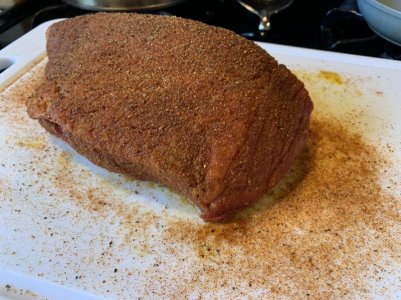 1D9016E5-EC2F-4F48-B4BF-81AE1B36535A.jpg99.2 KB · Views: 195
1D9016E5-EC2F-4F48-B4BF-81AE1B36535A.jpg99.2 KB · Views: 195 -
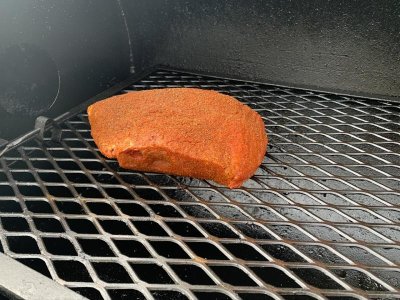 10B07881-D3CD-4B01-BE4A-A61A8A3CA4F7.jpg107.3 KB · Views: 196
10B07881-D3CD-4B01-BE4A-A61A8A3CA4F7.jpg107.3 KB · Views: 196 -
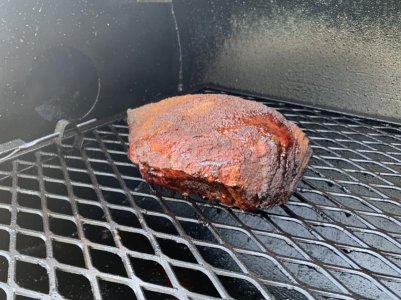 8D4E6070-5C34-4ECA-87EC-7C0BF8C04483.jpg97.2 KB · Views: 194
8D4E6070-5C34-4ECA-87EC-7C0BF8C04483.jpg97.2 KB · Views: 194 -
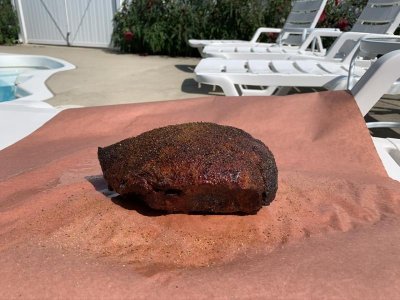 29359AF5-086C-477B-A025-38D9EEE6558C.jpg73.4 KB · Views: 194
29359AF5-086C-477B-A025-38D9EEE6558C.jpg73.4 KB · Views: 194 -
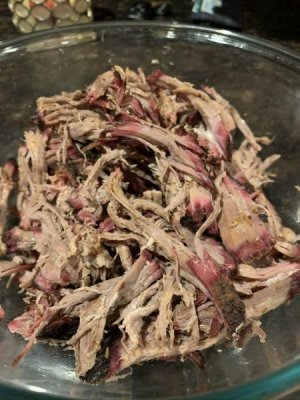 5D8B76D7-C943-4C6C-B38B-B0444A3DD362.jpg54.9 KB · Views: 192
5D8B76D7-C943-4C6C-B38B-B0444A3DD362.jpg54.9 KB · Views: 192 -
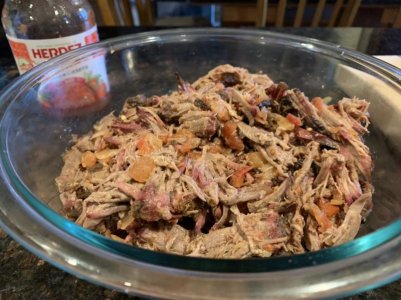 42EFAB37-AC9F-4D0C-B307-96861436A3F6.jpg80.2 KB · Views: 193
42EFAB37-AC9F-4D0C-B307-96861436A3F6.jpg80.2 KB · Views: 193 -
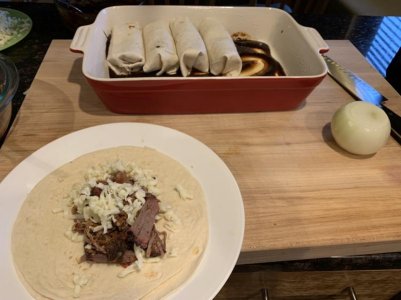 DD67ACEC-42DB-4D79-BF38-EF695B4F5ABE.jpg54.7 KB · Views: 194
DD67ACEC-42DB-4D79-BF38-EF695B4F5ABE.jpg54.7 KB · Views: 194 -
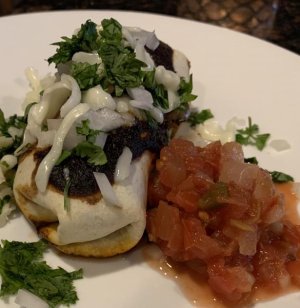 584A3CB2-8676-413A-A162-E1A0A1D8F3BB.jpg46 KB · Views: 195
584A3CB2-8676-413A-A162-E1A0A1D8F3BB.jpg46 KB · Views: 195




